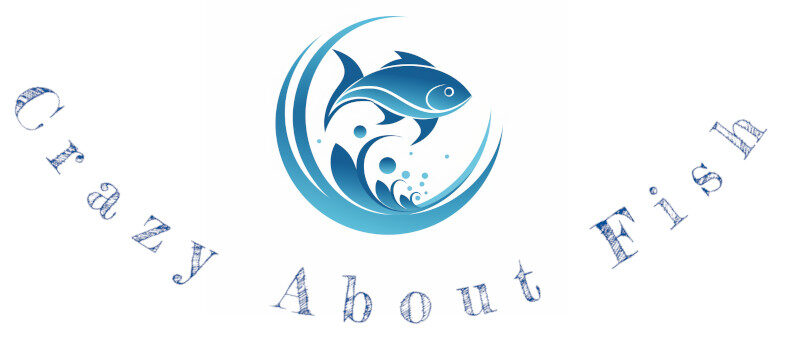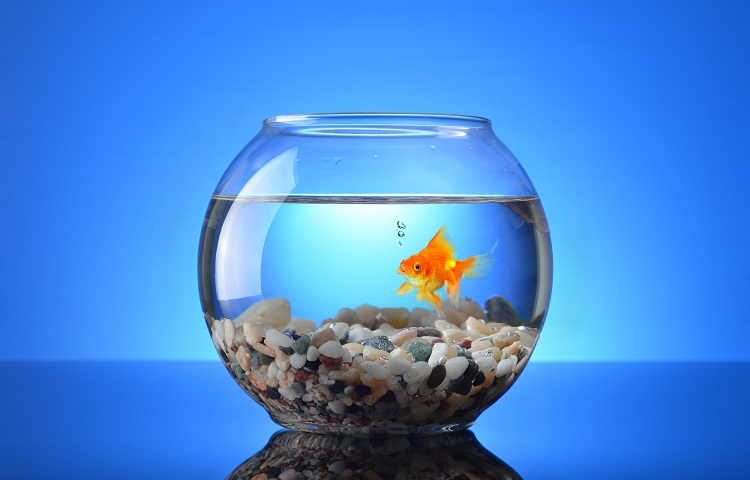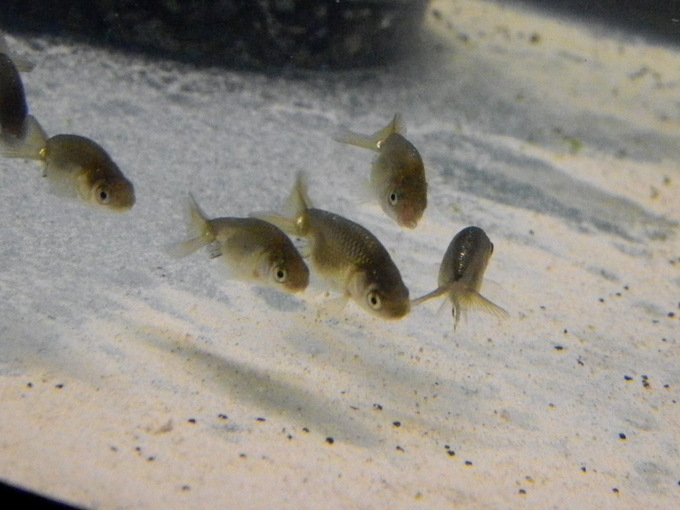
“Feeding Baby Goldfish” might sound like a fast-food special for underwater creatures, but in fact, it’s a serious business that requires more than just sprinkling flakes into a tank. These little golden nuggets of joy, as tiny as they are, come with an appetite that can rival a shark’s. Okay, maybe not a shark’s, but they do need their fair share of nutrients to grow into the majestic swimmers we all adore.
Being a parent to a baby goldfish (also known as a fry, not to be confused with the French fries you might be craving) is no small feat. It’s like being a gourmet chef for a very picky, very tiny customer. You’re always on the lookout for the freshest ingredients, the perfect meal plan, and the right feeding schedule. And just when you thought you’ve got it all figured out, here comes the question- “Do baby goldfish really need diet food?” So, buckle up for a swim down the stream of truth as we debunk myths and serve up facts about feeding your little finned friends. After all, a well-fed goldfish is a happy goldfish!
Understanding The Basics of the Goldfish Diet
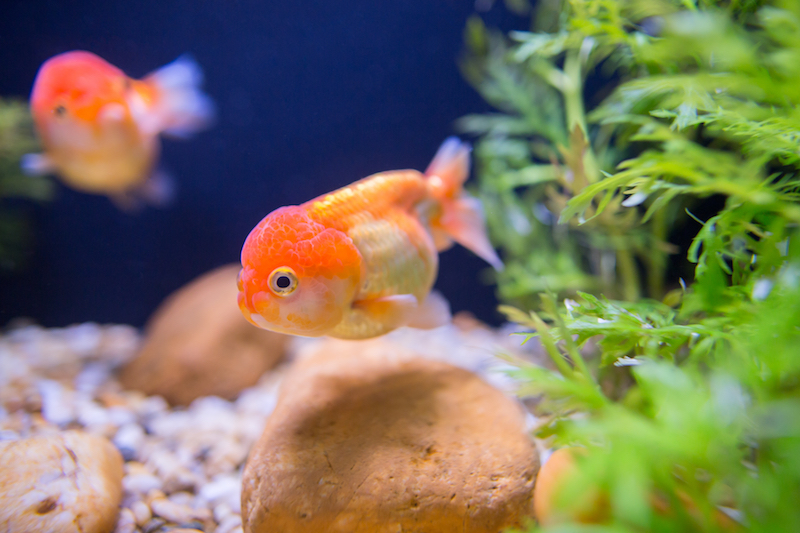
Diet is crucial for any living creature, and goldfish are no exception. These aquatic beauties have specific dietary needs that should not be brushed off like pesky seaweed stuck to your fingers. Goldfish diets encompass a balanced mix of proteins and carbohydrates sprinkled with traces of fats, vitamins, and minerals. Whether you’re feeding them ready-made specialty fish food, vegetables, or live foods, ensuring your goldfish gets a well-rounded diet sounds like a marine version of Masterchef. The interesting twist, however, comes with the consideration of age. Let’s forget the age-is-just-a-number quote for a moment, and dig into whether baby goldfish, also known as fry, have different dietary needs.
As we wade a little deeper into these intricate waters, let us put on our detective hats and attempt to debunk one of the most debated topics in the goldfish world.
Myth vs. Reality- Do Baby Goldfish Really Need Diet Food?
With a variety of conflicting information floating around like poorly navigated sailboats, the subject of baby goldfish and diet food has turned into a maritime legend of sorts. On one hand, some believe that just like human babies, goldfish fry has unique dietary requirements. Others argue that the colorful species aren’t as high maintenance as they’re made out to be and just regular goldfish food does the job for the fry as well. So, what’s the fact? Do adorable baby goldfish need specially formulated diet food or is it just a marketing shtick better suited for selling ships in a bottle to enthusiastic tourists? Before we undertake this journey to unravel the truth, let’s equip ourselves with some necessary background information about the underwater lives of baby goldfish. So, dear reader, let’s take a leap and splash into understanding the world of baby goldfish.
Understanding Baby Goldfish

Now that we’ve laid the basic groundwork, it’s time to dive deeper into the shimmering, swirling world of baby goldfish. Let’s leave behind the myths and misconceptions to truly understand what’s going on beneath the surface of your fish tank.
What to Expect from a Baby Goldfish’s Diet
As we all know, babies have different dietary requirements than their adult counterparts, and baby goldfish are no different. They don’t exactly open their eyes requesting a diet slab of seaweed or a slimming flake of Brine Shrimp.
Their diet consists of what you might call the goldfish equivalent of ‘baby food.’ This primarily includes high-quality goldfish pellet food, brine shrimp, and daphnia, which are basically tiny water fleas. Yum, right? Goldfish babies, also known as fry, need a lot of protein for growth so they do tend to chow down more heartily than their adult counterparts.
A Glimpse into the Life of a Baby Goldfish
Some might think the life of a baby goldfish involves just aimless swimming and bubble-blowing. They’d be wrong. These teensy, glinting swimmers are the embodiment of the phrase ‘growing like a weed.’ In the comfort of their cozy aquarium, they sprout almost as quickly as your garden weed in the rainy season.
A baby goldfish’s life surrounds considerable growth within a compact time bracket. Hence, it’s not a surprise that their diet holds a significant role in determining the next phase of their life. Quick growth requires good nutrition, and that’s where their high-protein diet steps in.
With our aquarium-fashioned magnifying glass, we’ve dived a bit deeper into the life and feeding habits of baby goldfish. Not to burst the suspense bubble, but it appears they don’t exactly need a diet plan labeled ‘calorie-light flakefish.’ Before we reach the final verdict on the dietary needs of baby goldfish, let’s float around the broader goldfish diet spectrum to see the standard these little dudes should adhere to. Stay with us as we make a splash into the next segment.
The Goldfish Diet: An Overview

Before we dive into the mysteries surrounding the feeding habits of tiny, googly-eyed aquatic creatures, let’s set the stage with a brief understanding of the general goldfish diet. Do you believe goldfish are the aquatic equivalent of garbage disposal, gulping down anything that fits in their mouth? Well, you’re not entirely wrong, but there’s a little more to it.
Typical Diet of Goldfish
Goldfish are omnivorous which means they love both a Flemish still life’s worth of vegetables and juicy little insects or small crustaceans. A balanced diet for your gilded pet should contain a mix of flakes, pellets, fresh fruits, vegetables, and occasionally, live food like brine shrimp or daphnia.
The secret to their glowing goldfish health? Variety and moderation. I’m pretty sure Confucius or a diet guru said that at some point, but I didn’t check the exact quote, because I was busy feeding my goldfish a gourmet medley of peas, corn, and shrimp. Also, remember to crush the food into bite-sized pieces because while your goldfish might have the appetite of a shark, they have the mouth of… well, a goldfish.
Dietary Differences between Adult and Baby Goldfish
So, how does the diet of a baby goldfish differ from that of an adult goldfish? Very simply, baby goldfish or, for those sticklers for terminology, goldfish fry, need extra protein for growth. Kind of like how your growing teenager is currently attempting to single-handedly support the neighborhood pizza place.
While adult goldfish diets should be balanced between plant and animal matter, fry diets should lean heavier on the animal side. Tiny, easily digestible meals are critical—for both their size and their constant growth. Think of it like baby mush but for fish, except instead of flavorless goop, they’re getting the five-star cuisine of brine shrimp and high-quality fish flakes.
Now, let’s dive into the deep end. Do baby goldfish require diet food or are they immune to the pressures of the fish body-ideal and societal expectations? That’s what we’re wading into next, so hold your breath (or, if you’re a goldfish, don’t).
The Truth About Feeding Baby Goldfish
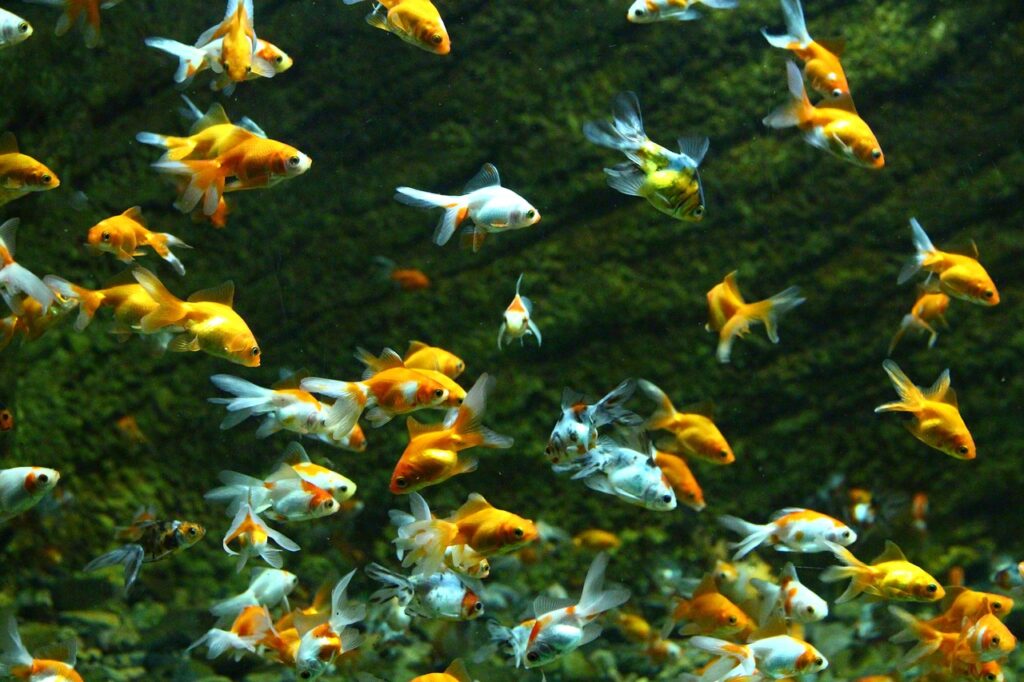
As we swim deeper into the vast ocean of baby goldfish nutrition (pardon the pun), let’s settle the swirling sea of myths and misconceptions. The big question remains – do baby goldfish need diet food? With the much-needed unveiling of the truth, you’ll soon see why some people call me a Sherlock Holmes of fishy business!
Setting the Record Straight About Baby Goldfish Nutrition
A fun fact about baby goldfish (also known as fry) is that they are like the teenagers of the goldfish realm. They are growing, and they are growing fast. During this period, their nutritional needs differ slightly from their fully grown, adult counterparts.
Just as adolescents don’t shop in the diet aisle, baby goldfish don’t need diet food either. They require a more protein-rich diet to help their little golden bodies grow. Including high-quality proteins in their diet will help them bulk up and strengthen their fins for all that lightning-fast darting around in the tank. On the diet list, you can include high-quality goldfish flakes, brine shrimp, and the caviar of the fish world, daphnia!
Diet food, typically lower in protein and higher in fiber, is not inherently bad for fry. However, it might not provide the essential nutrients needed for their optimum growth. I mean, imagine trying to feed a high school football team on nothing but kale smoothies – doesn’t quite fit, does it?
Evidence on the Necessity of Diet Food for Baby Goldfish
Let’s take a dive into the science behind it all, shall we? Multiple studies suggest that baby goldfish thrive on high-protein diets, with around 40-50% protein being ideal. As for dietary fiber or ‘diet food’, science simply doesn’t support its necessity for baby goldfish.
This isn’t just a fishy claim! A research study conducted by Gümüş and İkiz (2014) concludes that providing a protein-rich diet contributes significantly towards better growth and survival rate of baby goldfish. Similarly, a study by Hatlen et al. in 2005 found that a low protein and high carbohydrate diet (like most diet foods) could lead to reduced growth in goldfish fry.
So, as you can see, diet food isn’t quite the ‘magic growth elixir’ for your baby goldfish. Instead, a protein-packed meal plan seems to be the way to goldfish glory! But remember, just like us, overeating isn’t good for them. No one wants a bloated goldfish!
Makes you wonder about feeding your baby goldfish, right? Worry not. In the next part, we’ll explore just how you can provide the right balance of nutrients for your little aquatic buddies. Because over here, we don’t just spill the tea, we help you brew it too!
Feeding Your Baby Goldfish

Having successfully cast our lines deep into the aquatic abyss of the baby goldfish diet, let’s swim back to the surface for some fresh air – and some practical tips!
Nutritional Essentials for A Baby Goldfish

Picture this: you’re a baby goldfish in the open aquarium, what would you crave? If your guess is ‘Baby Brine Shrimps’, hats off to you! BFBS (or Baby Fish Brine Shrimp, for the uninitiated) is like the goldfish equivalent of a gooey chocolate cake – irresistible and filled with nutrition. It is rich in proteins and essential amino acids that support their growth. Spirulina flakes and liquid fry food are also excellent sources of protein! And let’s not forget about veggies – the best way to introduce this to your pint-sized finned friend is through spirulina: a superfood algae that boosts their immune system and aids digestion.
How Often To Feed Fry Goldfish
Pardon me for invoking Shakespeare, but “To feed or not to feed: that IS a question!” Small, frequent meals are the way to go with baby goldfish. They should ideally be fed about 5% of their body weight daily, spread across 5-6 small feeds. Overfeeding, like in humans, can lead to obesity and other health problems.
Ways To Ensure Your Baby Goldfish is Getting a Balanced Diet
Like a salad bar that has something for everyone, variety is an essential part of maintaining a balanced diet for baby goldfish. Genetically speaking, goldfish are omnivores, meaning they crave it all: proteins, carbs, and fats. A healthy mix of live food, vegetable matter, and specific baby-friendly formulated flake food or pellets will cater to all their dietary needs.
And now, for an Aquarian twist on an old adage: “An ounce of prevention is worth a pound of cure.” Regular water quality checks and strictly following the feeding guidelines for baby goldfish can prevent most nutritional problems before they even start!
So, there you have it, a crash course on feeding your baby goldfish. But remember, these little swimmers have more to them than meets the eye.
Next up, a summary of what we’ve learned and some final ruminations on our journey under the sea with baby goldfish. Stay tuned! You won’t want to miss our grand finale.
To Sum Up
What a swim we’ve taken in the vast ocean of understanding our little goldfish friends and their dietary needs. Our journey began with basic dietary principles, took a curious dip into the lives of the baby goldfish, and then navigated the distinctions between adult and baby goldfish nutrition. This exploration led us to debunk the myth that baby goldfish require an elaborate diet – instead, a healthy meal of regular high-quality, nutrient-rich food serves their needs best.
A Quick Recap
Here’s a brief look back: baby goldfish, though tiny, require a high-quality diet, filled with protein, to thrive. Their menu doesn’t need to be fancy but should include peas, brine shrimp, and high-quality goldfish flakes or pellets.
Final Reflections on Fry Goldfish Nutrition
Caring for our goldfish isn’t complex, but it does require conscious efforts to maintain a balanced diet for them. As we conclude, remember, your role is much like that of a nutritionist for your tiny aquatic pals. Keep their dietary needs in focus and you will nurture happy, healthy goldfish, adding joy and vitality to your aquarium. Cheers to a brighter, better life for our goldfish companions. Onwards we swim!
Frequently Asked Questions (FAQ)
Question 1: What do Baby Goldfish Eat?
Answer: Baby goldfish typically eat brine shrimp, daphnia, and a variety of properly sized high-quality fish flakes or pellets. They need a diet rich in protein to support their rapid growth.
Question 2: Is there a difference in the diet of adult and baby goldfish?
Answer: Yes, adult goldfish eat plant matter, insects, and small crustaceans, but baby goldfish require food rich in protein to support their rapid growth. The food particles should also be small enough for them to ingest.
Question 3: Do baby goldfish need diet food?
Answer: This largely depends on what we refer to as ‘diet food.’ If it implies specially prepared food for baby goldfish, then yes, they do need it for their growth and development. But if ‘diet food’ means a restrictive feeding regime like in humans, then no, baby goldfish do not. Instead, they require consistent nourishment.
Question 4: How often should I feed my baby goldfish?
Answer: Baby goldfish should be fed 2 to 4 times daily. But remember, overfeeding can be harmful, so give small amounts that they can consume within 2 minutes.
Question 5: How can I ensure that my baby goldfish gets a balanced diet?
Answer: Provide them a variety of foods from high-quality fish pellets to brine shrimp and daphnia. This ensures they get a mix of nutrients necessary for their growth. And remember, always feed them food that is appropriately sized for their small mouths.
